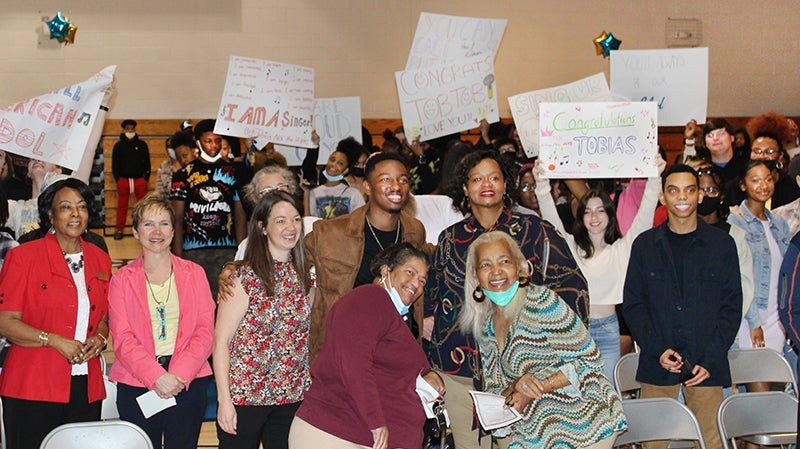Roanoke Connect:
Published 9:09 am Tuesday, November 18, 2014
By Brittany Tann
REC Public Relations
AHOSKIE – Roanoke Electric Cooperative (REC) is taking steps to bring its members into the twenty-first century, in terms of technology.
REC executives recently explained how the cooperative will bring broadband technology to this rural area. The search engine www.bing.com provides this definition of broadband: “The term broadband refers to the wide bandwidth characteristics of transmitting or sending information, and its ability to send multiple signals and types of traffic at the same time. In this case, the medium is optical fiber” (from Wikipedia.org), which makes high-speed internet access more available throughout the region.
“REC’s motivation for providing broadband service to our area is to take care of internal, operational needs,” said Curtis Wynn, Chief Executive Officer (CEO) of Roanoke Electric Cooperative. “We want to make sure that all twelve substations can communicate with each other in order to do a better job of predicting and managing outages, protect our substations and metering equipment from vandalism and theft, and be more proactive in communicating with individual members regarding usage.”
A secondary, however, major benefit of this project will be the opportunity for other companies to subscribe to the cooperative’s underutilized fiber and offer high-speed internet access to individual consumers.
“This will be convenient for the internet service provider (ISP) to access. REC will not actually provide it, but we have contracted an engineering firm to lay this out. The engineering firm has identified the route,” said George Stamper, Vice President of Engineering at REC.
“In designing the main line system, they will need to have access points, or locations where the internet service connects to the fiber,” Stamper said. “REC will have access at the level where it connects with the cooperative’s substations, in order to make it accessible for the service providers. ISP’s will connect at that point and provide the last mile — to the member’s home, a school, etc.”
“Roanoke Connect is a four million dollar investment that will help bring broadband services to our members,” Wynn said. “REC will not provide the service but will enable it.” Wynn explained the enabling process: REC will provide access to its infrastructure, or its fiber network, and this will enable the technology service providers (such as internet service providers or ISP’s) to provide the services to the REC members.
REC will directly enable telecommunication services for hospitals and schools in their service area. The cooperative will attempt to communicate with ISP’s and cell phone companies.
“For example, we have been talking with Gates County Schools,” Wynn said.
REC will provide telecommunications companies with access to its infrastructure.
Wynn said that REC will lease the broadband services to other businesses, like schools, but will own the infrastructure. In some cases, broadband communication systems have been complex and expensive both to install and to operate. However, Wynn does not foresee any difficulties with this.
“Roanoke Connect falls in line with our plan of work. It will complement what we already have and investments that we have already made,” he said.
“The biggest issue we may face, if any, is there not being an interest. However, our indicators are that there will be an interest, because people need broadband services,” Wynn said.
Implementation of this project will occur in phases. “Completion will be within 24 months. One phase will start in Quarter One of 2015,” Wynn said.
REC will also investigate the concept of e-rate. Information on the Federal Communications Commission’s website, FCC.gov, explains e-rate as a program that connects the nation’s schools and libraries to broadband. This website also states that the e-rate program “makes telecommunications and information services more affordable for schools and libraries in America. E-rate provides discounted telecommunications, Internet access, and internal connections to eligible schools and libraries, funded by the Universal Service Fund (USF)” (http://www.fcc.gov/guides/universal-service-program-schools-and-libraries). Successfully securing these funds will provide support to the cooperative’s investment in this project.
It is possible that other industries will join the Roanoke Connect project in the future, Stamper indicated.
“Other opportunities may evolve as the project continues, like with local businesses. Where broadband exists, it will foster growth in our community,” he said.
Wynn advised that REC members can receive information on Roanoke Connect by visiting www.roanokeelectric.com/connect.


